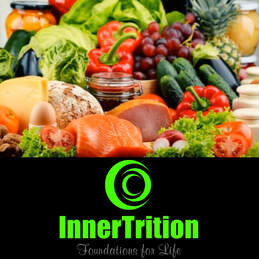 The debate runs high when it comes to dietary decisions. Today’s societal attention on nutrition stems from a multitude of perspectives and opinions…not to mention the marketing and advertising around these views. One such controversial topic is: Is it better to be a vegetarian or a meat eater? Recently, Vegetarian diets continue to increase in popularity. Reasons for following a vegetarian diet are varied but include health benefits, such as reducing risk of heart disease, diabetes and some cancers, while others reasons do so with more ethical and environmental concerns in mind. For the purpose of this article, lets take a look from the health and nutritional biochemistry standpoint. Studies have shown that Vegetarians do appear to have decreased low-density lipoprotein cholesterol levels, lower blood pressure, lower rates of hypertension and type 2 diabetes than meat eaters. Vegetarians also tend to have a lower body mass index, lower overall cancer rates and lower risk of chronic disease. However some vegetarians may unwarily consume too much processed foods, which can be high in calories, sugar, fat and sodium and are often missing essential micronutrients. These are also some common misconceptions about a vegetarian diet:
Here are a few Pros and Cons of Vegetarian Diets Pros: Reduced risk of heart disease, hypertension, Type 2 diabetes Decreases risk of certain cancers Reduced risk of rheumatoid arthritis, kidney disease, gallstones Cons: Diets can be low in vitamin B12, Diets can be low in omega-3 fatty acids Does require special attention Some people may adopt vegetarian diets solely to lose weight. Some people may adopt vegetarian diets to mask an eating disorder Types of Vegetarian Diets: When people think about a vegetarian diet, they typically think about a diet that doesn't include meat, poultry or fish. But vegetarian diets vary in what foods they include and exclude and therefore must be fully understood when reviewing overall results listed above:
Lets start by taking a look at our anatomy and physiology. First, is our teeth that of a carnivore? In comparison to meat eating animals, they don’t seem as effective for ripping and grinding flesh. How about our digestive tract? Our guts are too long for just meat digestion and not long enough for absorption of all plant substances, and still our teeth don’t quite optimally fit that of Herbivores. Meat eating and human evolution According to some evolutionary theories, eating meat is what gave early humans the beginnings of advanced development of brain function and efficient neurophysiology. Meat is packed protein that may have helped us to develop the intricate wiring and processes of our brain and that the essential amino acids are utilized very differently from just plant proteins. Some researchers believe that hunting prey contributed to our bipedal stance, and that planning and conducting a hunt could have assisted the development of language, communication, and complex societies. Health benefits of eating meat: Meat is rich in protein and vitamin B-12 and is also a good source of iron, so it’s easy to see how incorporating meat into their diet might have helped our ancestors to thrive and survive. Today, however, protein is much easier to obtain — in nuts and beans, for example. Vitamin B-12 can be found adequately in cheese, eggs, milk, and artificially fortified products, and we get iron from legumes, grains, nuts, and a range of vegetables. Could it be that we are omnivores; that we can and should handle both meat and plants? With this in mind, rather than asking, “Should we eat meat?” we should probably be asking, “Is there an adequate level of meat consumption for optimal health?” and, “Which types should we limit?” Respectively, we can split meat into four categories: Fish, white, red, and processed. Fish and white meat are generally considered fairly healthful — as long as you don’t prepare them by deep frying or doused is sauces and unhealthy toppings. Red and processed meats are a different story. These tend to be more associated with colon cancer and heart disease. The majority of studies conclude that eating more of this meat is a bad idea. I am interested in your thoughts? Do you think that we as humans need meat protein for optimal health? Follow us @Innertrition on Instagram, Facebook and Twitter, and check out our blog @ www.innertrition.com for some good topics and insights.
1 Comment
|
AuthorMark T. Cuatt Archives
March 2020
Categories |
 RSS Feed
RSS Feed